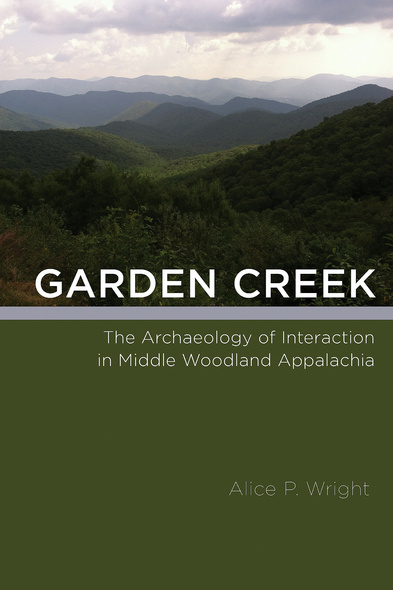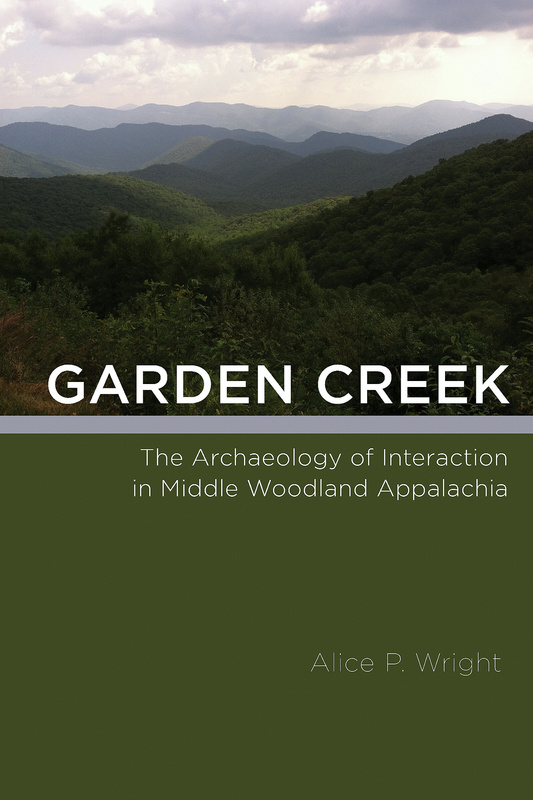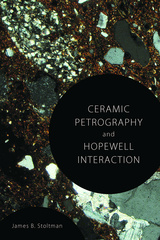
208 pages, 6 x 9
36 B&W figures - 1 map - 8 tables
Hardcover
Release Date:03 Dec 2019
ISBN:9780817320409
Garden Creek
The Archaeology of Interaction in Middle Woodland Appalachia
University of Alabama Press
A Dan Josselyn Memorial Publication
Presents archaeological data to explore the concept of glocalization as applied in the Hopewell world
Originally coined in the context of twentieth-century business affairs, the term glocalization describes how the global circulation of products, services, or ideas requires accommodations to local conditions, and, in turn, how local conditions can significantly impact global markets and relationships. Garden Creek: The Archaeology of Interaction in Middle Woodland Appalachia presents glocalization as a concept that can help explain the dynamics of cross-cultural interaction not only in the present but also in the deep past.
Alice P. Wright uses the concept of glocalization as a framework for understanding the mutual contributions of large-scale and small-scale processes to prehistoric transformations. Using geophysical surveys, excavations, and artifact analysis, Wright shows how Middle Woodland cultural contact wrought changes in religious practices, such as mound building and the crafting of ritual objects for exchange or pilgrimage.
Wright presents and interprets original archaeological data from the Garden Creek site in western North Carolina as part of a larger study of the Hopewell Interaction Sphere, a well-known but poorly understood episode of cross-cultural interaction that linked communities across eastern North America during the Middle Woodland period. Although Hopewellian culture contact did not encompass the entire planet, it may have been “global” to those who experienced and created it, as it subsumed much of the world as Middle Woodland people knew it. Reimagining Hopewell as an episode of glocalization more fully accounts for the diverse communities, interests, and processes involved in this “global” network.
Presents archaeological data to explore the concept of glocalization as applied in the Hopewell world
Originally coined in the context of twentieth-century business affairs, the term glocalization describes how the global circulation of products, services, or ideas requires accommodations to local conditions, and, in turn, how local conditions can significantly impact global markets and relationships. Garden Creek: The Archaeology of Interaction in Middle Woodland Appalachia presents glocalization as a concept that can help explain the dynamics of cross-cultural interaction not only in the present but also in the deep past.
Alice P. Wright uses the concept of glocalization as a framework for understanding the mutual contributions of large-scale and small-scale processes to prehistoric transformations. Using geophysical surveys, excavations, and artifact analysis, Wright shows how Middle Woodland cultural contact wrought changes in religious practices, such as mound building and the crafting of ritual objects for exchange or pilgrimage.
Wright presents and interprets original archaeological data from the Garden Creek site in western North Carolina as part of a larger study of the Hopewell Interaction Sphere, a well-known but poorly understood episode of cross-cultural interaction that linked communities across eastern North America during the Middle Woodland period. Although Hopewellian culture contact did not encompass the entire planet, it may have been “global” to those who experienced and created it, as it subsumed much of the world as Middle Woodland people knew it. Reimagining Hopewell as an episode of glocalization more fully accounts for the diverse communities, interests, and processes involved in this “global” network.
Wright's investigation and interpretations of the Garden Creek site open a window on an important and understudied corner of the Hopewell Interaction Sphere. The intensive investigation of this relatively small area is an exemplary case study that will be useful as a model for similar projects.’
—Bradley T. Lepper, author of Ohio Archaeology: An Illustrated Chronicle of Ohio's Ancient American Indian Cultures
Garden Creek skillfully summarizes past and present work at an important site, challenging the notion that Native American societies of Appalachia were isolated from those elsewhere in North America and, in a larger sense, the assumption that the indigenous societies of the continent were any less 'globalized' than our own.’
—Thomas J. Pluckhahn, author of Kolomoki: Settlement, Ceremony, and Status in the Deep South, A.D. 350 to 750
Alice P. Wright is assistant professor of anthropology at Appalachian State University. She is coeditor of Early and Middle Woodland Landscapes of the Southeast.
Contents
List of Illustrations
Acknowledgments
Chapter 1. Archaeologies of Interaction
Chapter 2. Middle Woodland Appalachia in Context
Chapter 3. Biography of a Platform Mound
Chapter 4. Biography of a Geometric Enclosure
Chapter 5. Biography of an Occupation Area
Chapter 6. Conclusion: Garden Creek and the Glocal Middle Woodland
References Cited
Index








